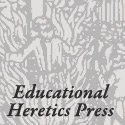Are newly-qualified primary teachers better trained now than previously? Have serving primary teachers been energised by initiatives designed to raise educational standards and reform the workforce? Are primary schools better led? After two decades of change how does the primary teaching profession see itself?
These questions are addressed in the three Primary Review research reports published today. Covering the period 1988-2008 they are based on an assessment of over 600 published sources of evidence and have been commissioned from members of the Primary Review’s team of 70 academic consultants. Report 6/3 tracks reforms in initial teacher education (ITE), continuing professional development (CPD) and school leadership. Report 6/4 considers the government’s ambitious programme of primary workforce reform. Report 6/2 looks more broadly at how primary teachers have responded to the changing character of their professional roles and lives, especially in relation to curriculum, pedagogy, leadership and management.
Inevitably, the picture conveyed by the vast range of evidence surveyed for these three reports is mixed, as during any period of transition it is bound to be. Thus, on the basis of its inspections, Ofsted records greatly improved standards of ITE, especially in relation to government priorities, and talks of ‘the best trained generation of teachers ever’; but other studies find that vital aspects of the primary teacher’s work have been squeezed out. The streamlining of CPD has effectively focused professional attention on the requirements of the national literacy and numeracy strategies; but it has not always served the needs of teachers with different skill levels and at different stages of their careers. Workforce reform initiatives are generally welcomed, though there are concerns about sustainability. Some studies report primary teachers feeling de-professionalised and de-skilled; others view this is an oversimplification when younger teachers are positive and enthusiastic and many of their more experienced colleagues successfully resist attempts to make them fit a particular professional mould.
Today’s reports have been commissioned as evidence to the Primary Review, which however reserves judgement on their findings pending its assessment of the full range of evidence. They are:
Primary Schools: the professional environment (Primary Review Research Survey 6/2) by Liz Jones, Andy Pickard and Ian Stronach, Manchester Metropolitan University. Cambridge: University of Cambridge Faculty of Education. ISBN 978-1-906478-25-4.
Primary Teachers: initial teacher education, continuing professional development and school leadership development (Primary Review Research Survey 6/3) by Olwen McNamara and Rosemary Webb, Manchester University, and Mark Brundrett, Liverpoool John Moores University. Cambridge: University of Cambridge Faculty of Education. ISBN 978-1-906478-26-1.
Primary Workforce Management and Reform (Primary Review Research Survey 6/4) by Hilary Burgess, The Open University. Cambridge: University of Cambridge Faculty of Education. ISBN 978-1-906478-27-8. Reports can be downloaded at www.primaryreview.org.uk (from 9 am on 18 April).
Extracts from Research Report 6/4:
‘Overall, the view from headteachers, teachers and teaching assistants on workforce reform in schools is supportive, although there are concerns about sustainability … Teachers have been positive about the introduction of Planning and Preparation Time (PPA) and the increased deployment of teaching assistants in schools … Teachers now view teaching assistants as crucial to their effective teaching [and] assistants [are] on the whole broadly satisfied with their role … Evaluation of the Primary Leadership Programme found [that] pupil attainment at Key Stage 2 was improving, there were improvements in data analysis … changes in teaching style … [and] a stronger sense of team work … Problems have been created through the speed at which the reform of the workforce agenda has been pushed out to schools. There are still issues to resolve such as the impact upon pupil learning, the impact upon school management and the linking with a wide range of external services.’
Extracts from Research Report 6/3:
‘The last 25 years have seen a period of sustained and increasingly radical reforms to ITE as successive governments have increased prescription and control through the regulation of courses, curriculum content and the assessment of standards. The result of these changes, and the rigorous inspection regime which has been mobilised to ensure compliance with them, has been to improve standards and increase the quality and preparedness of newly qualified teachers, as measured by the Ofsted inspection framework … and target course content on the core [primary] curriculum, particularly English and mathematics … … but leave little time for previously key aspects of curricular and professional learning such as non-core subjects, especially on postgraduate routes … render peripheral many important debates about ITE … [and] create a schism between research active staff and teacher educators which, exacerbated by the drive for increased research selectivity … has meant that most teachers are trained in departments with no core research funding.’
‘Leadership development activity has moved through phases of ad hoc provision under the aegis of LEAs … to the development of national programmes for head teachers … and the formation of a National College of School Leadership … This has been a significant achievement but has raised concerns that … the leadership development framework has too great an emphasis on standards-based approaches … [and that] the structure is too detailed, prescriptive and bureaucratic.’
Extracts from Research Report 6/2:
‘On balance we find that the claimed de-professionalisation of teachers is an over-simplification … The National Curriculum decreased teacher autonomy in relation to content, the National Literacy Strategy and National Numeracy Strategy likewise in relation to pedagogy. Teachers were reported to be “proletarianised”, de-professionalised, de-skilled and sometimes demoralised … But this bleak picture had exceptions. Younger teachers were much more likely to be positive about the job; levels of enthusiasm were generally high amongst newly-qualified teachers … In addition, not all teachers succumbed to government micro-management of their work … ‘
‘There needs to be a slower, more deliberative and consultative context of policy development … The relation of research to policy and practice needs to be linked more systematically and enduringly to deep issues concerning learning and motivation, rather than tied to the evaluation of ephemeral initiatives … Innovation is too often a matter of ill-considered policy borrowing. Research needs to consider not just outcomes within a rubric of effectiveness and efficiency but also the slower and deeper emergence of enduring excellence in classrooms and schools.’









